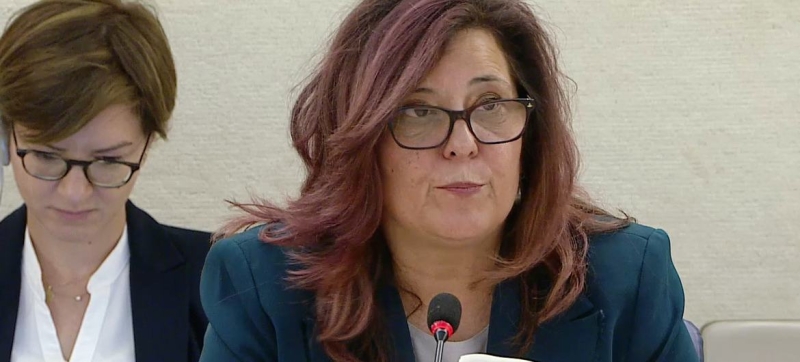
Special Rapporteur on the situation of human rights in the Russian Federation Mariana Katsarova. Russia: UN independent expert renews call for immediate release of Alexei Gorinov Human Rights
UN Special Rapporteur on the situation of human rights in the Russian Federation Mariana Katsarova today renewed her call for the immediate and unconditional release of former municipal deputy Alexei Gorinov, who is serving a prison sentence under Russia’s “military censorship” laws, which she says are aimed at peaceful dissent following Russia’s full-scale invasion of Ukraine.
“I am outraged by the severity of punishments for peaceful anti-war protests in today’s Russia. Alexey Gorinov is paying an incredibly high price for his right to freedom of speech,” Katsarova said.
According to her statement, Russian authorities opened a second criminal case against Gorinov, as a result of which he was sentenced to an additional three years in prison on November 29, 2024. Gorinov has been arbitrarily detained since April 2022, the human rights activist noted.
On March 15, 2022, Gorinov spoke out against a children’s drawing competition at a municipal council meeting, calling Russia’s invasion an act of aggression and saying that Ukrainian children were dying every day. He was later arrested for “spreading knowingly false information” and sentenced to seven years in prison on July 8, 2022.
Gorinov became the first Russian to be convicted under the “military censorship” laws that Katsarova said were passed against dissidents in the wake of the full-scale invasion. He was found guilty under Article 207.3 of the Russian Criminal Code for allegedly “publicly disseminating knowingly false information about the use of the Armed Forces of the Russian Federation.”
According to Katsarova, this article is reminiscent of the infamous Article 58 of the USSR Criminal Code on “anti-Soviet propaganda,” which was used in Soviet times to persecute political dissidents.
Read also:
INTERVIEW | UN Special Rapporteur on Russia: “Who’s next after Navalny?”
“Despite repeated calls from me, the international community, and Russian civil society to release Gorinov and ensure his access to adequate medical care, the opposite is happening,” she said. “The Russian authorities continue to persecute Gorinov and other individuals for political reasons.”
In the second criminal case brought against Gorinov, he is charged under Article 205.2 of the Criminal Code of the Russian Federation, which provides for criminal liability for “public justification of terrorism,” for his statements regarding the attack of the Ukrainian army on the Crimean Bridge, made while he was in the prison hospital. Thus, Gorinov will have to spend another five years in the colony in harsher conditions.
“In addition to the arbitrary arrest and trials turned into a farce, Gorinov is being held in conditions tantamount to torture,” Katsarova said.
In his latest speech at the Vladimir Military Court, Gorinov said that he does not have access to adequate medical care. He is being subjected to punitive measures, including long-term solitary confinement in a punishment cell, with mandatory checks every two hours, which deprive him of normal sleep, the UN expert noted.
She added that for almost two weeks in 2023, Gorinov’s whereabouts remained unknown despite attempts by his lawyers to access him, amounting to an enforced disappearance. On December 25, 2023, one of his lawyers was informed that Gorinov had been hospitalized due to a serious health condition.
“I will continue to call for the release of political prisoners, whose number has reached almost 2,000 people, although this figure may be much higher,” Katsarova said. She cited her latest report to the Human Rights Council, which said that the “military censorship” and “terrorism” laws under which Gorinov was tried and sentenced are systematically used to persecute peaceful protesters and dissidents in Russia. In a separate opinion in November 2022, the UN Working Group on Arbitrary Detention found Gorinov’s detention arbitrary and called for his release from prison.
“The abuse of national security legislation to silence dissent in Russia must stop,” the Special Rapporteur said.
Special Rapporteurs and Working Groups are part of the so-calledSpecial Procedures of the Human Rights Council. Special Procedures experts work on a pro bono basis; they are not UN staff and do not receive a salary for their work. They are independent of any government or organization and serve in their individual capacity.
